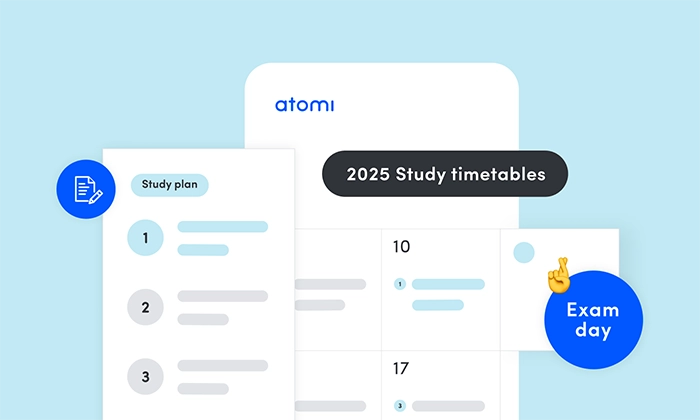Not the same old revision tips

You’ve got mind-maps, revision cards and memory tricks galore. But we’ve got the revision hacks to take you from A to A*, without a highlighter in site…
Read the examiner’s reports
Every year, the exam boards make a public document that is written by the people who are going to mark your papers. And in it, would you believe, they tell you what they like to read and conversely, what they hate. Going on the amount of people that actually read this bit of gold dust, you would think this was a well-kept industry secret. But nope, it’s there for all of you to use. So do yourself a favour and use it.
Be all fancy and print it off, write down the key points and make mind maps. Stick it on your wall. Keep it under your pillow. Memorise it, then eat the paper. Whatever. Just make sure, if you’re doing an essay subject, you walk into that exam hall knowing that, for the last however many years in a row, examiners have awarded high marks to pupils who have done A, B and C. Capeesh?
Don’t re-re-re-learn – practice!
👏Put👏the👏revision👏cards👏down👏.
There’s no point going over something a million times once you’ve already learnt it; you need to be able to apply your knowledge, otherwise, what the heck are we all doing here? At least two weeks before the exams, move your focus from mind-maps to past papers. Do each one twice. Trawl through the mark scheme and ensure you understand everything there. The mark scheme is literally telling you the best possible way to answer the question, so make sure you absorb it all.
It’s less about instantly knowing how to answer a question and more about learning to work it out when you’re in the exam. You won’t do this by trying to absorb every minute detail of the syllabus. You will have a much better chance learning how to make connections between different areas of the syllabus and using what you know of the mark scheme to make sure you’re hitting all the examiner’s boxes.
Plan by topic, not subject
Write down every single topic in each of your subjects and estimate how many 50 minute revision sessions you will need for each one. Some will probably only need two, and others will need a few more. This is the basis of your revision timetable. Now plug them into your timetable and stick to it. This way, you will A) cover everything you need for the exam, nothing more, nothing less B) find the whole process less daunting because small chunks = less of a chore and C) you won’t waste time just flicking through any book finding something to revise
Use your friend’s brains
In case you’ve forgotten, you have a class-full of friends out there going through this same A-level malarkey. If you’re having trouble wrapping your head around something, chances are someone else is going to be able to explain it to you beautifully. Don’t be afraid of revising together, just go with a plan – a few topics/areas you want to cover – and teach each other. Having someone else explain something to you in a new way is going to make it stick a lot more, and explaining something to someone else is a really great way of testing your understanding. Don’t quiz each other, your mum can do that, sit and intelligently discuss a certain topic, taking in their different perspectives. Or set up a mock debate, with one of you arguing one side and another the other side – a little bit of friendly competition is motivation’s best friend.
Remember
This stuff right here ^ is what separates the A* students from the rest. It’s not the hardest stuff, or even the most time-consuming stuff and you certainly don’t have to be a rocket scientist to do it. It’s just about working smarter, rather than harder - so don’t just read it, put it into practice. Good luck!
References
Subscribe to our newsletter
Get the latest teaching and learning insights delivered to your inbox.
You can unsubscribe at any time, no hard feelings.
Subscribe to our newsletter
Get the latest teaching and learning insights delivered to your inbox.
You can unsubscribe at any time, no hard feelings.
What's Atomi?
Easy to understand, super engaging, and matching what you’re learning in class. Available for 100s of subjects across your high school years.
With heaps of questions and smart AI feedback that shows you what you’ve nailed and what to work on—so you won’t just feel ready, you’ll be ready.
Improve your study game, get AI-driven tips tailored to you, keep tabs on your progress and unlock insights so you can always hit your goals.
What's Atomi?
Captivating and impactful video-first content, fit for all types of learners and grounded in the absolute must-have info of the high school curriculum.
Active recall quizzes, topic tests and exam practice enable students to get immediate feedback and build skills, while allowing teachers to differentiate instruction.
Create engaging learning experiences with easy-to-use tasks, get actionable insights to differentiate instruction and experience intelligent personalisation for your students.
What's Atomi?
Short, curriculum-specific videos and interactive content that’s easy to understand and backed by the latest research.
Active recall quizzes and practice sessions enable students to build their skills, put knowledge into practice and get feedback.
Our AI understands each student's progress and makes intelligent recommendations based on their strengths and weaknesses.




